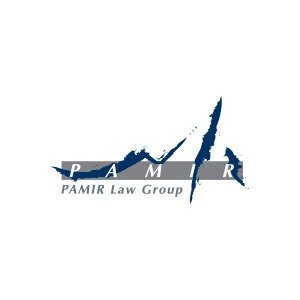Best Public-Private Partnerships (PPP) Lawyers in Taiwan
Share your needs with us, get contacted by law firms.
Free. Takes 2 min.
Or refine your search by selecting a city:
List of the best lawyers in Taiwan
About Public-Private Partnerships (PPP) Law in Taiwan
Public-Private Partnerships, commonly known as PPP, are collaborative projects where the government partners with private entities to deliver public infrastructure or services. In Taiwan, PPP frameworks have become increasingly essential in sectors such as transportation, education, healthcare, urban development, and energy. The goal is to combine the strengths of the public sector, such as stability and regulatory oversight, with the innovation, efficiency, and funding capabilities of the private sector.
PPPs in Taiwan are primarily governed by the Promotion of Private Participation in Infrastructure Projects Act, which outlines the legal framework and process for implementing these projects. This legislation aims to create a transparent and investor-friendly environment, encourage private investment, and ensure public interests are protected during project execution.
Why You May Need a Lawyer
Entering into a PPP arrangement involves a complex set of regulations, contracts, and risk management considerations. Seeking the help of an experienced lawyer is vital in several situations, including:
- Understanding the laws and compliance obligations when preparing for a PPP bid
- Assisting with negotiations and drafting of PPP project contracts
- Advising on land use, environmental regulations, and obtaining necessary licenses or permits
- Ensuring that all contractual obligations and risk allocations are fair and legally sound
- Handling disputes, breach of contract claims, or renegotiations with government authorities
- Navigating foreign investment rules for overseas investors in Taiwanese PPP projects
- Dealing with issues related to project finance, tax, and intellectual property in innovative infrastructure projects
A qualified PPP lawyer can help safeguard your interests, save costs in the long term, and increase your project's chances of success.
Local Laws Overview
Taiwan’s legal regime for PPPs is shaped mainly by the following legislation and regulations:
- Promotion of Private Participation in Infrastructure Projects Act: The backbone law for all PPP arrangements in Taiwan, which covers project tendering, contract awarding, construction, operation, and transfer or termination of PPP projects.
- Government Procurement Act: Governs procurement procedures for PPP projects handled by government agencies to ensure fairness and transparency.
- Special regulations by sector: Additional requirements may apply for projects related to environment, transportation, healthcare and other important industries.
- Tax incentives: Various tax benefits and incentives are available for private sector participants willing to invest in public infrastructure.
- Dispute resolution mechanisms: PPP contracts must often specify arbitration or other mechanisms for resolving disputes between public and private parties.
Foreign investment is permitted, subject to Taiwan’s investment regulations and reviews, and detailed due diligence is necessary to navigate these requirements.
Frequently Asked Questions
What is a Public-Private Partnership (PPP) in Taiwan?
A PPP in Taiwan is a formal agreement where a government agency collaborates with a private sector entity to design, build, finance, operate, or maintain public infrastructure or services, based on a clear allocation of risks and rewards.
Which law primarily governs PPP projects in Taiwan?
The main legal framework is set out in the Promotion of Private Participation in Infrastructure Projects Act, which provides key procedures and requirements for all PPP undertakings.
Are foreign investors allowed to participate in PPP projects?
Yes, foreign investors are allowed to participate, though they must comply with investment regulations, security reviews, and sometimes sector-specific restrictions under local laws.
What kinds of projects are suitable for PPP in Taiwan?
Typical projects include transportation infrastructure like highways and railways, public utilities, schools, hospitals, social housing, and energy plants, among others.
What are the typical steps in a PPP project process?
The general steps include project identification by the government, public announcement or tendering, proposal evaluation, contract negotiation, financial close, construction, operation, and eventual handover or contract termination.
What type of contract models are used in Taiwan's PPP projects?
The most common models include Build-Operate-Transfer (BOT), Build-Transfer-Operate (BTO), Build-Own-Operate (BOO), and Operation and Maintenance (O&M) contracts.
What are the main risks involved in PPP projects?
Key risks include regulatory and compliance issues, construction delays, changes in law or policy, revenue risks due to demand fluctuations, and potential disputes over contract terms.
Are there any incentives for private partners in PPP projects?
Yes, Taiwan offers various incentives such as land use support, tax breaks, subsidies, and government guarantees to encourage private sector participation.
How are disputes in PPP projects typically resolved?
Disputes are usually resolved through negotiation, mediation, or arbitration as specified in the PPP agreement. Litigation in Taiwanese courts remains an option as a last resort.
Why should I consult a lawyer before entering into a PPP project?
A lawyer provides essential guidance on compliance, risk assessment, contract drafting, and dispute resolution, helping you avoid costly mistakes and strengthen your project’s chances of success.
Additional Resources
Several organizations and government bodies provide information and support for PPP projects in Taiwan, including:
- Ministry of Finance, Public Construction Commission (PCC): Responsible for oversight and guidance of PPP projects
- Investment Commission, Ministry of Economic Affairs: Provides information on investment regulations and project opportunities for both domestic and foreign investors
- National Development Council: Involved in policy planning and major infrastructure strategies
- Various law firms and legal consultancies specializing in infrastructure and project finance
- Industry associations and PPP interest groups offering news, case studies, and best practices
Next Steps
If you are considering participation in a PPP project in Taiwan, the following steps can help you prepare:
- Research ongoing and upcoming PPP opportunities through official government channels
- Identify the sector and project type that matches your expertise or business interests
- Gather all necessary corporate documents, financial information, and project team details
- Request a consultation with a legal expert experienced in PPP law in Taiwan
- Prepare relevant questions and information regarding your project goals, risk tolerance, and contractual expectations
- Evaluate the legal advice received and develop a strategy for bidding, negotiating, or managing a PPP contract
- Stay up to date with changes in laws, regulations, and government policies affecting PPPs in Taiwan
Working with a specialized lawyer is the best way to ensure compliance, minimize risk, and protect your investment throughout the PPP project lifecycle.
Lawzana helps you find the best lawyers and law firms in Taiwan through a curated and pre-screened list of qualified legal professionals. Our platform offers rankings and detailed profiles of attorneys and law firms, allowing you to compare based on practice areas, including Public-Private Partnerships (PPP), experience, and client feedback.
Each profile includes a description of the firm's areas of practice, client reviews, team members and partners, year of establishment, spoken languages, office locations, contact information, social media presence, and any published articles or resources. Most firms on our platform speak English and are experienced in both local and international legal matters.
Get a quote from top-rated law firms in Taiwan — quickly, securely, and without unnecessary hassle.
Disclaimer:
The information provided on this page is for general informational purposes only and does not constitute legal advice. While we strive to ensure the accuracy and relevance of the content, legal information may change over time, and interpretations of the law can vary. You should always consult with a qualified legal professional for advice specific to your situation.
We disclaim all liability for actions taken or not taken based on the content of this page. If you believe any information is incorrect or outdated, please contact us, and we will review and update it where appropriate.
Browse public-private partnerships (ppp) law firms by city in Taiwan
Refine your search by selecting a city.
















